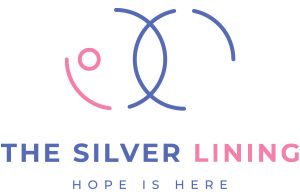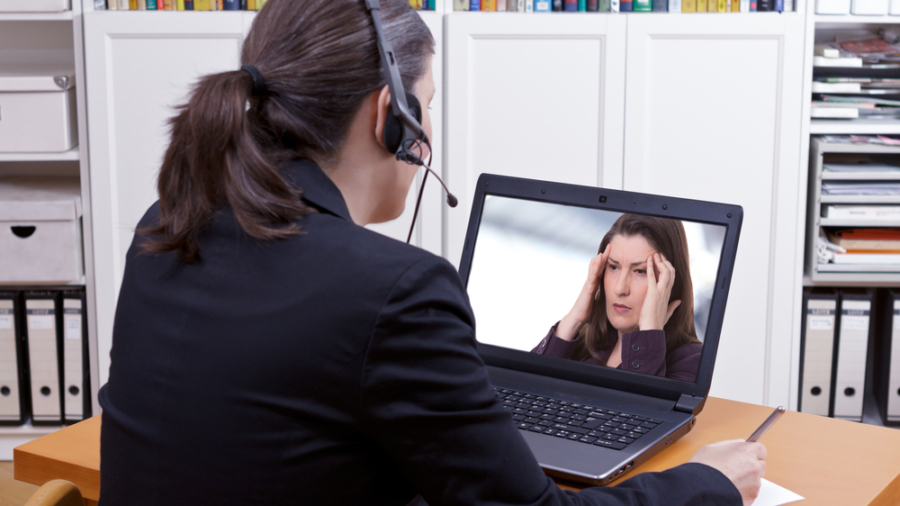The COVID-19 has caused the whole world to retire indoors and occupy the digital space. While online counselling has been around for several years now, it is in times of the pandemic that more and more people are warming to the idea of availing therapy sessions online. Online therapy involves providing mental health services and support over the internet. It can occur through email, text messaging, videoconferencing, online chat or messaging. Online therapy can occur in real-life, such as in phone conversations, text messaging, or video-calls. It may also occur in a time-delayed format, such as through emails and text messages.
At The Silver Lining Wellness Centre Pvt. Ltd., we have been offering online sessions since our inception. However, we have had a lot of people expressing concern about its effectiveness compared to face-to-face sessions. In a review of studies published in the journal World Journal of Psychiatry, in 2015, patients receiving mental health treatment through video conferencing reported “high levels of satisfaction.” [1] According to Thompson (2016), clients receiving sessions over the telephone were primarily satisfied with the online therapy sessions they experienced.[2] Over the past two decades, the mental health community has gradually come to view online therapy as a promising adjunct to traditional therapeutic methods. This change in opinion coincides with the increased use of computer-mediated communication across the broader field of healthcare. Today when the whole world is in lockdown and everyone is working from home, online therapy makes mental health services accessible to everyone, and in times of this uncertainty and panic, we need to make mental health a priority now more than ever. A study conducted by Gratzer and Khalid-Khan (2016) found that online CBT (cognitive-behaviour therapy) combined with clinical care was effective in the treatment of depression, anxiety, and illness-related emotional distress. In some cases, the results indicated that some patients had better outcomes with online treatment than those who had traditional in-person CBT. [3]
One of the biggest advantages of online therapy is convenience since the person can receive a session from the comforts of their own home. However, if their home-environment does not guarantee them privacy or a stable internet connection, online therapy may not be a viable option. Having access to reliable technology is the corner-stone of online therapy. However, online therapy cannot be recommended for more severe forms of mental illness, including substance addiction and psychiatric conditions like schizophrenia for these require more support than online therapy can provide. Clients having the label of epilepsy or prone to seizures should also approach online therapy with caution.
Some days ago, I read a book titled ‘The Silent Patient’ by Alex Michaelides. In that book is written:
“At the time I didn’t understand. But that’s how therapy works. A patient delegates his unacceptable feelings to his therapist; and she holds everything he is afraid to feel, and feels it for him. Then, ever so slowly, she feeds his feelings back to him.”
At the end of the day, the relationship you forge with the therapist is what therapy is all about. So if you are a person who finds it hard to forge a connection over the phone or computer, in-person sessions might be a better option for you. However, if you are able to find a therapist you feel you can trust and are able to form an alliance with, online therapy might just be worth a shot.
Sharing testimonials of two happy clients who had sessions with me on Skype to enable you to learn more about the mode of online therapy and its effectiveness through their direct experience. Their names have been withheld to maintain anonymity and confidentiality.
“I was hit by a series of life events that left me emotionally drained and broken. It started in August 2016 with the end of a three year-long marriage. I developed dependency on alcohol and by the beginning of 2018 I was diagnosed with a gastrointestinal disease due to excessive alcohol consumption. My blood reports suggested that I was low on many vital minerals and vitamins. The distress was so overwhelming that I could not focus on work. I quit two jobs in a period of six months and soon found myself looking forward to nothing but hopelessness. I had lost the love of my life, my health was deteriorating, I was jobless and had no source of income. I was always restless, imagining the worst outcomes, sleepless and almost contemplating suicide. Psychiatrists prescribed high dose antidepressants to me, but I did not want to rely on medications. A friend introduced me to Divya in November, 2018. I started feeling a shift in my energy immediately after my first session with her over Skype. I have been undergoing therapy for six months and I have seen a major shift in my energy. Divya has always been available on WhatsApp and helped me overcome intrusive thoughts that I had almost every day. Today, I have regained my confidence, started working again and become self-reliant. There are days when I still feel low and restless, but I know how to deal with my feelings. All thanks to Divya, I am improving every day and inching towards finding myself.“
– S.R., Journalist.
“I had a wonderful session with Divya Srivastava over Skype and oh my God! She is an amazing facilitator and therapist. I am so glad I listened to my divinity and got this session with her for my migraine. Migraine, as physical as it may be, just like all other physical ailments, has its root cause deep inside our inner self… Our inner child…. Today she helped me release and clear a lot of fixed ideas, old beliefs and blocks that I had picked up through my experiences ever since my childhood. She helped me see myself as a whole new self and open my eyes to the new potentials! We actually travelled back in time, fixed things and came back to the new version of me! (Before you start saying it’s not possible due to alternate realities, well I said the same thing but surprisingly she made it possible. So no arguments here.) Divya I am so thankful to you for being who you are!“
– P.D., Wedding Photographer.
- Chakrabarti S. “Usefulness of telepschiatry: A critical evaluation of videoconferencing-based approaaches.” World J Psychiatry. 2015; <https://www.ncbi.nlm.nih.gov/pubmed/26425443>
- Thompson, Ryan Baird. “Psychology at a Distance: Examining the Efficacy of Online Therapy.” Portland State University. 2016. <https://pdxscholar.library.pdx.edu/cgi/viewcontent.cgi?article=1343&context=honorstheses>
- Gratzer D, Khalid-khan F. “Internet-delivered cognitive behavioural therapy in the treatment of psychiatric illness.” CMAJ. 2016;188(4):263-272. doi:10.1503/cmaj.150007. <https://www.cmaj.ca/content/188/4/263>

